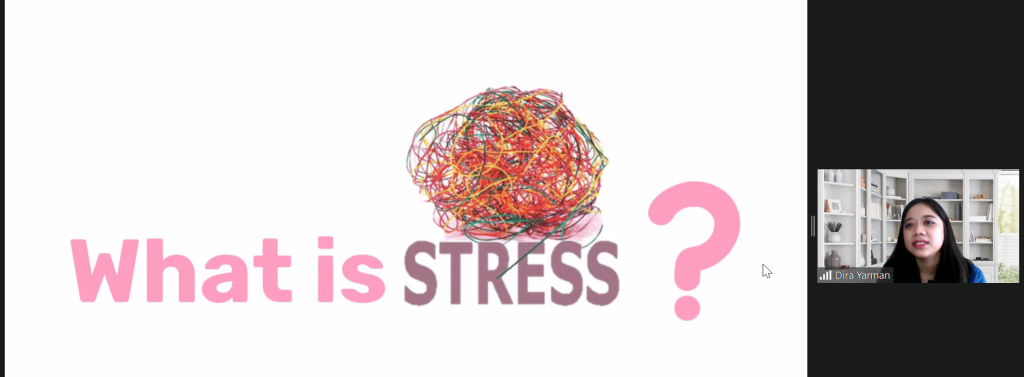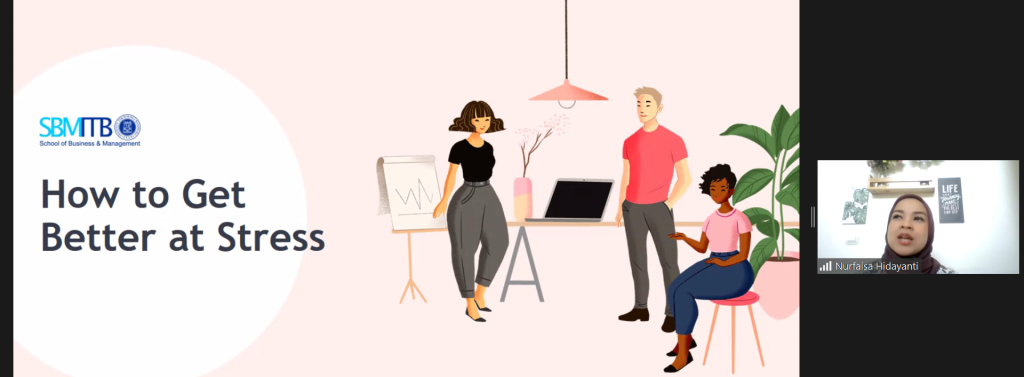Transitioning into student life entails many physical, intellectual, and social adjustments. Before assuming the role of a student, individuals often possess reasons for making mistakes and displaying irresponsibility. However, upon assuming the student role, individuals must take greater responsibility for their actions and choices.
According to two psychologists, Adira Yarman and Nur Faisa Hidayanti, adaptation to being a student, although necessary for growth, can also cause stress for students because they feel they cannot deal with it. Stress is a situation considered difficult by someone and influenced by individual perceptions.
Stress is common and can affect physical and mental health. However, many people do not realize they are experiencing stress, so it is often called a “silent killer.”
Adira and Nur Faisa explained this in a webinar on the importance of mental health for students held by SBM ITB on Saturday (5/8). In the webinar, Adira and Nur Faisa shared valuable insights and strategies for dealing with stress and improving mental health among students.

Adira, for example, discussed the early adult development phase of college students. According to Cox and MacKay, there are two types of stress: distress (negative stress) and eustress (positive stress). Distress is stress that interferes with daily activities and reduces productivity in the long term. Meanwhile, eustress is stress that makes a person more positive and increases motivation in the short term.
Adira emphasized the importance of perception in dealing with stress. If a person thinks he cannot deal with a situation, distress will arise. However, if one sees stress as a challenge that can be overcome, eustress can arise.
The reaction to stress is divided into four aspects: emotional, physical, cognitive, and behavioral. Students who experience stress may be irritable, frustrated, anxious, sad, and afraid, and their moods change quickly.
Students can experience stress due to various factors, encompassing physical demands like rigorous academics, family issues, financial constraints, educational challenges, and spiritual and social concerns. Consequently, students must recognize their stress responses as an early alert mechanism, enabling them to prevent stress from escalating to its peak and enabling more effective management.
On the other hand, Nur Faisa explained how to deal with stress and improve mental health, she elaborated that positive reactions to stress can motivate a person to face challenges. In contrast, adverse reactions can interfere with daily life and cause physical and psychological problems such as depression.

Nur Faisa said there are three approaches to managing stress: reactive, proactive, and reactive. The reactive approach deals with stress by changing the situation or environment so that the stressful situation is reduced. A proactive approach is a way of anticipating and avoiding stressful situations, while a reactive approach is a way of adjusting to stressful situations and developing mental resilience.
Students need to develop strategies that suit their personality and needs. Some strategies that can help deal with stress include seeking social support, talking to loved ones, maintaining a balance between academic and social life, exercising regularly, and learning relaxation techniques such as meditation or yoga.
SBM ITB aims that this webinar will enhance students’ awareness regarding the significance of mental health and equip them with the knowledge and skills to manage stress effectively. By providing appropriate support and fostering understanding, the goal is to alleviate students’ stress, thus enabling them to attain academic accomplishments and thrive.




